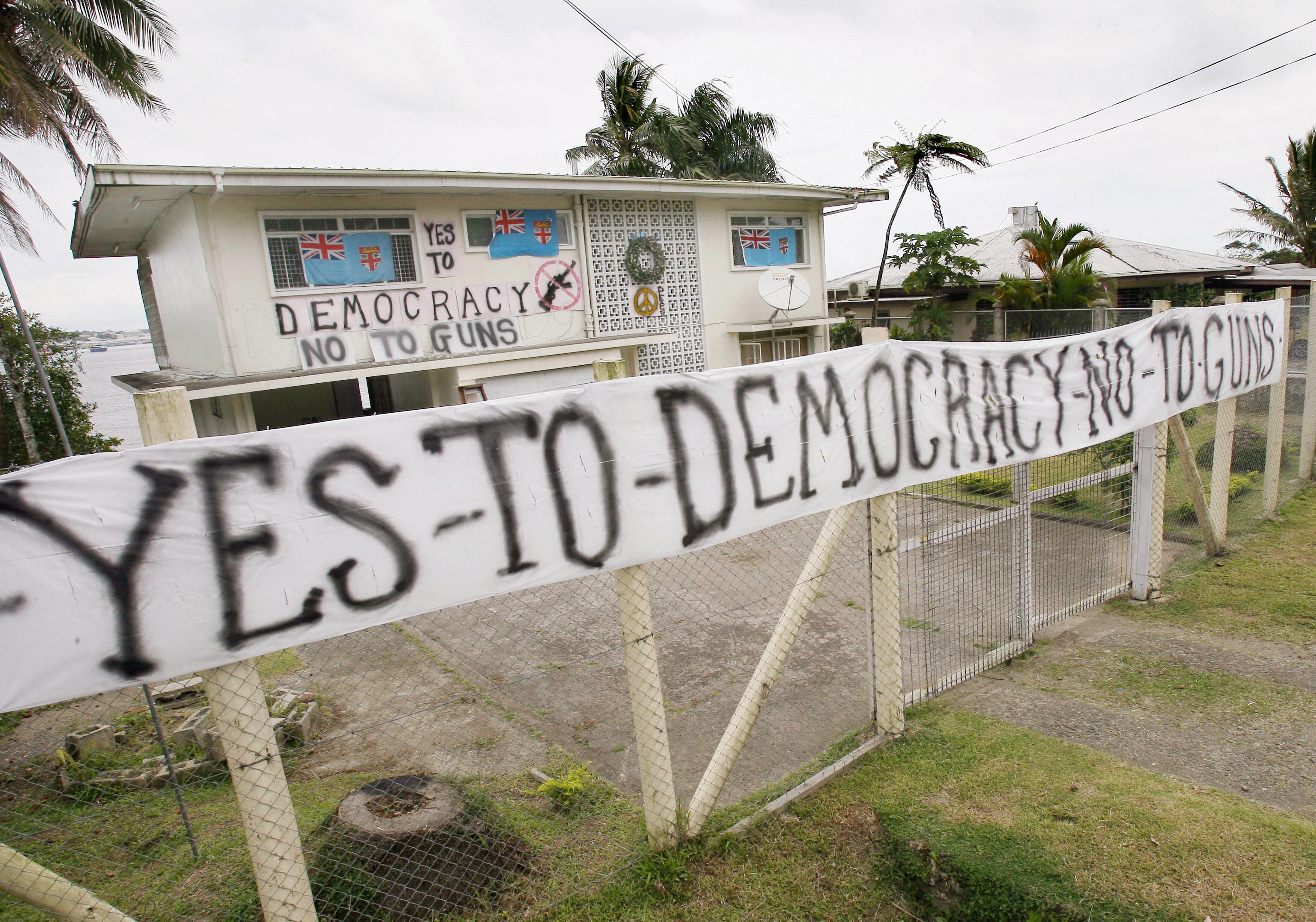
SUVA (Fiji Broadcasting Corporation / RNZI / Pacific Media Watch): Fiji's Electoral Commission has made a call for "ethical conduct" by candidates and the media ahead of next month's elections.
The Fiji Broadcasting Corporation reported that the commission's chairperson, Chen Bunn Young said that political parties and independent candidates must obey the Electoral Decree passed by the currently military regime. He also urged the public not to commit violence or utter racially inflammatory comments, and said that the media must be fair and balanced in their reporting.
However, at least two organisations involved in the election say they are being hampered from campaigning and from participating in the democratice process.
The Citizens' Constitutional Forum, an NGO, has had to postpone its planned series of panel discussions on the elections after the supervisor of elections, Mohammed Saneem, claimed that its first seminar on free and fair elections was in breach of the Electoral Decree.
The Electoral Decree lists a number of different offences which, if committed, carry a $50,000 fine and up to 10 years in prison. The CCF has already been threatened with the decree this year - PMW reported in April that the regime had accused the organisation of peddling lies in a voter educaton booklet and of being "funded by foreign entities and governments". The CCF then withdrew the booklet.
The second organisation to complain this week is "Be The Change". The party's leader, Roshika Deo told Radio New Zealand International that she was being trailed by police and intelligence operatives who film her meetings and follow her around:
There was an incident at Taveuni when I was there, a policeman in civilian clothes came and sat in a meeting with a group of women and I wasn't aware he wasn't from the community but the women were, so initially they were talking but as soon as he came he started recording quite evidently and the women stopped talking and interacting so that also affected our interaction with the women. It wasn't a safe space anymore. We've been in a military dictatorship for eight years, there is a culture of militarisation. People are apprehensive and scared. I go to certain communities and when people talk about the current context, they whisper. They whisper. As if someone's going to hear them. So there is still that element of fear.
I'm not able to widely promote where I'm going and where I'm not going and whom I'm meeting and whom I'm not meeting. I'm not able to advertise because of the primary target groups that I have which are youths and women, people living in poverty and people in rural areas. I'm more wary of the information that I put out because I'm thinking if I say I'm having a meeting at this place, at this time there will be a police presence there and as such it will prevent us form interacting in a way where we are able to address issues, concerns, have a vibrant discussion over issues. We're not being able to reach as many people as we could if there was no police intimidation. We've also had the police call our volunteers, sometimes pretending to be from other government institutions like the Ministry of Education.
The ones that call me, the ones that go and talk to the people I've spoken to identify themselves as from the intelligence. They don't go into much detail but they say they have been given direction from Suva and that the reports go to Suva. We've told them we don't want them within the meeting space. There has been some instances where they have left when I've asked them. One or two instances when they have not and there's been one or two instances where I was being .. imposed ..security ..that was how one of the district officers told me that he was going to send a police officer with me for security and I said I don't need security, I have my campaign people, and he says "oh no, that's the law, we have to send security" and I said "no that's not" and I said "no, you have to show me where the law is and we'll talk to the Commissioner about this but I do not want a police officer with me".
Media freedom under the spotlight as elections approach
NZ 'misguided' in believing elections will be free and fair
Fiji electoral decree ‘stifling debate’, says USP media academic
This work is licensed under a Creative Commons Attribution-NonCommercial 3.0 New Zealand Licence.




